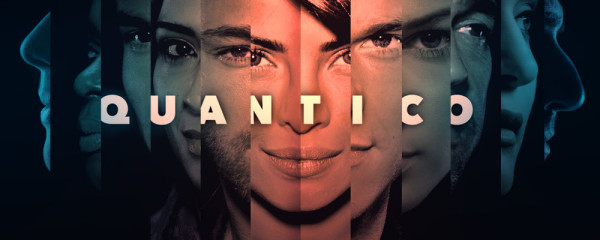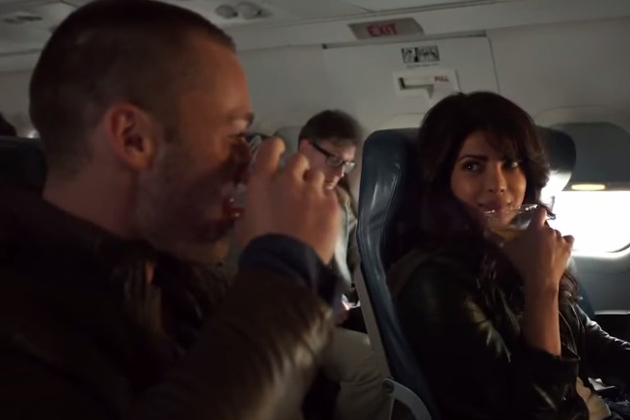Genre: TV Pilot – Drama/Thriller
Premise: A new crop of potential FBI agents are recruited to the Quantico training grounds, where they’ll be put to the test in the hopes of becoming members of the prestigious force.
About: Creator Joshua Safran is an NYU Tisch grad who was an executive producer and writer on the hit show, Gossip Girl. Pitched to buyers as “Grey’s Anatomy meets Homeland,” it wasn’t long before the Shonda Rhimes network – err, I mean, ABC – bit and bought the series. I’ve heard mixed things about the pilot but, without a doubt, Quantico has become one of the big TV show bets for the fall season.
Writer: Joshua Safran
Details: 57 pages
For those who don’t know anything about screenwriting, or for those who are just getting into it, there’s this pervasive thought out there that writing comes down to opinion. Like, some people may like something, other people may not like something, but it’s all in the eyes of the beholder.
They don’t realize that there’s actually a skill set involved in writing – that whether you’re interested in a particular subject matter or not, there are indicators that make it clear some writing is better than other writing. Comparing today’s pilot, Quantico, to yesterday’s screenplay, The Pier, reminded me of that.
The skill set of today’s writer, Joshua Safran, is just so much higher than yesterday’s skill set, it’s ridiculous. And I’ll get into more detail about that in a moment. But first, let’s discuss what Quantico’s about.
Quantico introduces us to 25 year-old Alex Weaver. Alex is sexy but guarded, the kind of girl who will sleep with a man on the down low to get her rocks off, then never talk to him again, because God forbid she actually connect with someone.
On the way to Quantico, the FBI training grounds, Alex does just that, sleeping with a man she meets on the plane named Ryan Booth. After ditching the sucker, she later finds out that she was the sucker. Turns out Ryan is also an aspiring FBI agent. Joke’s on you Alex.
We also meet a wide array of fellow potential students at Quantico. There’s gay Brooklyn hipster, Simon Asher, Midwest Muslim feminist, Nimah Anwar, Utah Mormon, Eric Packer, modern Sourthern belle, Shelby Wyatt, cocksure golden boy, Caleb Haas, as well as a few others.
The group is led by 56 year-old Liam O’Connor, who, like a lot of people here, isn’t entirely who he seems. In fact, we meet the guy trying to kill himself. Now he’s in charge of these rascals.
Quantico gets interesting when, during the training, we start flashing forward nine months, where we learn that a giant bomb has taken down Grand Central Station in New York. Alex happened to be on location when it happened, and is getting grilled by local task forces, who have told her the unthinkable: they believe one of her classmates at Quantico did this.
So we jump back and forth between the training and Alex getting interrogated as to what she knows. As the pilot goes on, we realize that they believe Alex is the terrorist. Which means that Alex will have to utilize everything she learned at the Academy to get the hell out of this mess, and figure out who the real terrorist is.
So at the opening of this review, I said there was a clear difference in skill sets between today’s script and yesterday’s, The Pier. Let me explain what I mean.
For starters, “The Pier” was extremely predictable. Now every story is unique. Some stories are meant to be told in offbeat ways and others straight-forward ways. You need to factor that into any analysis. But it’s always your job, as the writer, to anticipate what the audience is expecting, and play against that to some extent.
The problem with The Pier was that everything I expected to happen was exactly what happened. I mean, I knew on page 10 that on page 60 I’d be in some dark room on that pier with some creature spooking our characters out somehow.
Quantico wasn’t like that. I expected this to be very “Grey’s Anatomy,” where we simply meet a bunch of trainees, they get into a lot of sexy conflict for 60 minutes, a cliché cliffhanger arrives on the last page (one of the characters goes back to his room, closes the door, and calls someone on a secret phone and simply says, “Yeah, I’m in.”) then “The End.”
I was not expecting the flash-forward to the terrorist attack. Not only was that a surprise, but it added a nice “parallel storyline” structure to the pilot that gave it some depth.
Another area where you can really determine skill level in screenwriting is in how the writer disseminates exposition and backstory. Yesterday’s script did an okay job of this. They needed to explain the history of the pier and they did so with a rather standard but “got the job done” scene at the local museum where a guide uses a museum artifact taken from the pier as a jumping-off point to explain the pier’s history to a group of schoolchildren. Not terrible, but we’ve seen that scene a billion times before.
In Quantico, you don’t even realize you’re being handed backstory. Which is kind of shocking since there’s a ton of backstory here. How do they do this? They wrap the backstory in a series of scenes where conflict and drama take precedence. This way we’re more engaged in the drama than we are focused on the backstory.
The FBI trainees are told that their first test is to look through a fellow trainees’ profile. One major part of their profile has been deliberately omitted. It’s their job to find out what that missing piece of info is by any means necessary, then interrogate the trainee and get them to admit to it.
In all of these cases, what’s missing is something the trainees don’t want divulged. So these interrogations play out as these intense showdowns, a dance of pushing and pulling until one of the trainees finally breaks.
Of course, we’re so taken by the drama, by the characters trying to outsmart one another, that we don’t realize these scenes are 100% backstory injectors!!! They’re used to allow our characters to ask key questions about the trainees backstories so that the reader can get to know the characters better. In short, by wrapping backstory inside of drama, you display a much higher skill set than the average screenwriter.
Finally, good writers give us endings we didn’t see coming. This is one of the hardest things to do in screenwriting because everything in your story tends to point to one clear finish line. To then spin that to give us something we weren’t expecting requires some mad skill.
Where did The Pier end up yesterday? I’ll give you a hint. Our group of characters escaped the pier. Quantico ended up in the LAST place I expected it to. Again, I thought this was going to be some hot young actor feeder pilot that would keep our group of studs and super models in the friendly confines of Quantico while they trained to make agent for the next 2 years.
But Quantico ends (spoiler) with Alex escaping in the 9-months-forward timeline and becoming a fucking fugitive. What the hell??? Now maybe that becomes our “forward” timeline and, in future episodes, we still follow the “past” timeline where we watch our trainees try to make agent back at Quantico, but either way, this is not what I was expecting.
For all these reasons, Quantico is a great script to study if you’re interested in writing for TV. I’m not going to say it’s perfect. In fact, I’ve heard a lot of people complaining about the trailer being too focused on how sexy the cast is (I’m too afraid to watch the trailer for this reason – I hate how easy it is to screw up a pilot with bad direction), but as far as the script goes, it’s really good. I’m sure there are a few people in the comments section who can help you find it if you can’t seem to locate it yourself.
[ ] what the hell did I just read?
[ ] wasn’t for me
[xx] worth the read
[ ] impressive
[ ] genius
What I learned: Set up your characters AND tell a story with your pilot. A lot of pilots I read focus exclusively on setting up the characters. Especially in these “Grey’s Anatomy” type shows, where we’re being asked to meet an entire group of people working at a new location. On the flip side, I’ll also read a lot of “Lost” like pilots that are only interested in plot. They feel more like movies than TV shows as a result. Ideally, you want your TV pilot to do both. That’s why I liked Quantico so much. One half of its storyline is dedicated to introducing us to this large cast of characters. The other half gives us the plot-friendly terrorist attack to worry about. And not only that, it weaves these two halves together. The future plot requires our main character to figure out which one of the people she trained with is the terrorist. That’s good writing!



